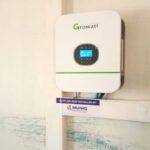Many factors are in the equation when acquiring a commercial or industrial power generator. Once the sizing and style of the generator are determined, the next step is often deciding if a rental or purchase is the best option. This article provides an overview of factors to consider when renting vs. purchasing a generator and includes some of the pros and cons most businesses and organizations have to consider when making this decision. Since Generator Source buys, sells and rents generators, this is a common but relatively complex question our staff helps many customers wade through.
Advantages of Renting a Generator
The most obvious benefit of renting a generator is that renting requires a fraction of the start-up cost when compared to a purchase. Some additional rental benefits are:
- Lower Initial Cost than Buying – for limited budgets this is often a key driver in the equation.
- Available on Short Notice – most outages are not planned, the rent-able generator can be readily available
- No Maintenance & Limited Downtime Risk- Rental units are maintained throughout the course of the rental. If the generator experiences a problem, service technicians are available from your rental provider to repair and/or replace the unit. For high availability continuous operations like mines and oil wells, this can be critical in reducing exposure to downtime.
- Generator Size Flexibility – Ability to return a generator sized for a particular job and select another appropriate generator for the next project.
- Generator Configuration Options – Most rental generators are setup to provide many different configuration options like voltage selector switches, numerous connection options, advanced control panels, and are generally easier to modify on the fly in many cases.
- No Installation Costs – most rentals are portable generator sets optimized for easy connection, they also enjoy minimal to no site planning/preparation and various electrical code requirements that come with many permanent installations.
- Rent to Own Options – Affords the customer the ability to purchase a leased generator at the end of the rental period.
- Time of Use – Only rent the generator as needed, for things like concerts and events this is ideal, and also common in short-term construction projects.
It is often a good idea to begin by calculating the rental cost against the purchase cost. When the cost of the generator rental approaches the purchase cost, a rental could be eliminated in favor of a purchase. However, factors in the above list can add to the deliberation and further complicate the issue.
For example, long-term rentals are common in the construction industry. Many times, new construction does not have utility power for a set amount of time. Road construction projects often require portable generators to move from one location to another within a project area. Hospitals and health care facilities that must have a constant, dependable power supply also have a need for temporary power. When an installed emergency generator is removed from automatic operation status, a sufficient power supply must be connected in its place. The generator supplying temporary power should be the same size as the primary generator.
At MUNIG Engineering Services Ltd, we truly believe that having a well-designed and well-maintained standby power system is the best protection against utility power outages. With our high capacity reliable and durable generators, we lease and hire for commercial purposes. They can withstand heavy load for long hours and start off the power supply on full load within minutes


